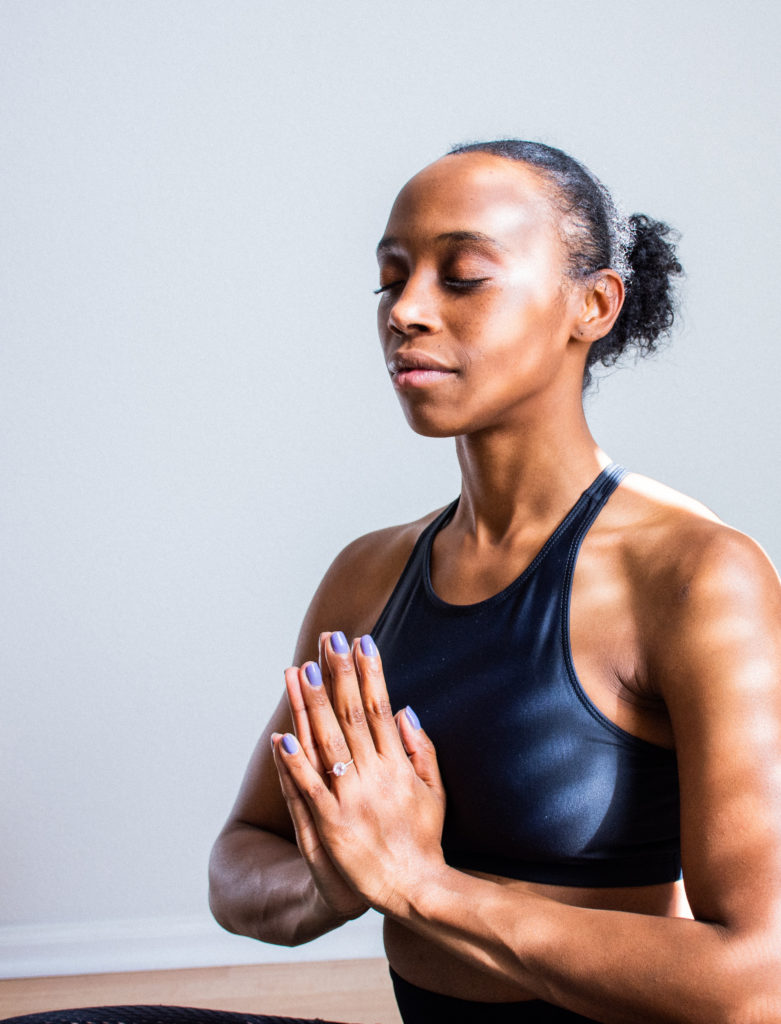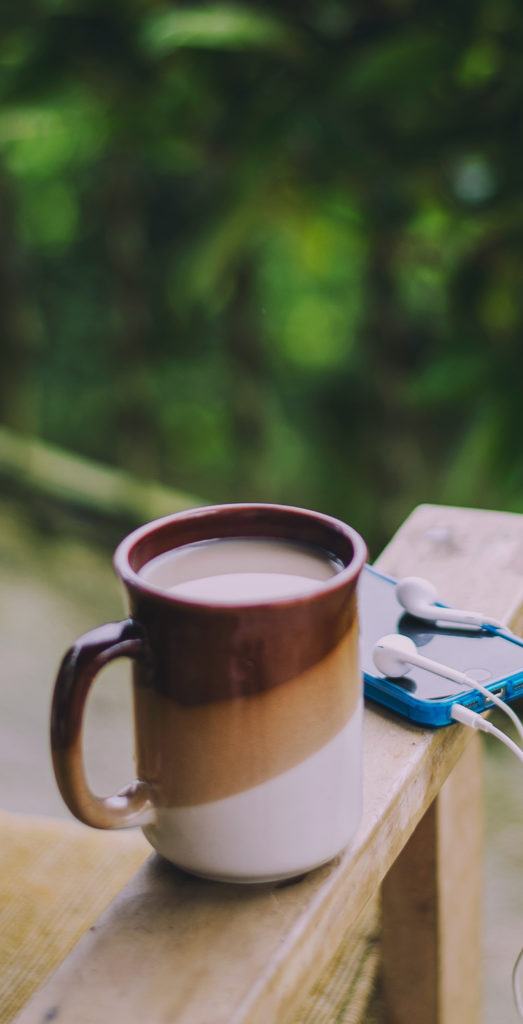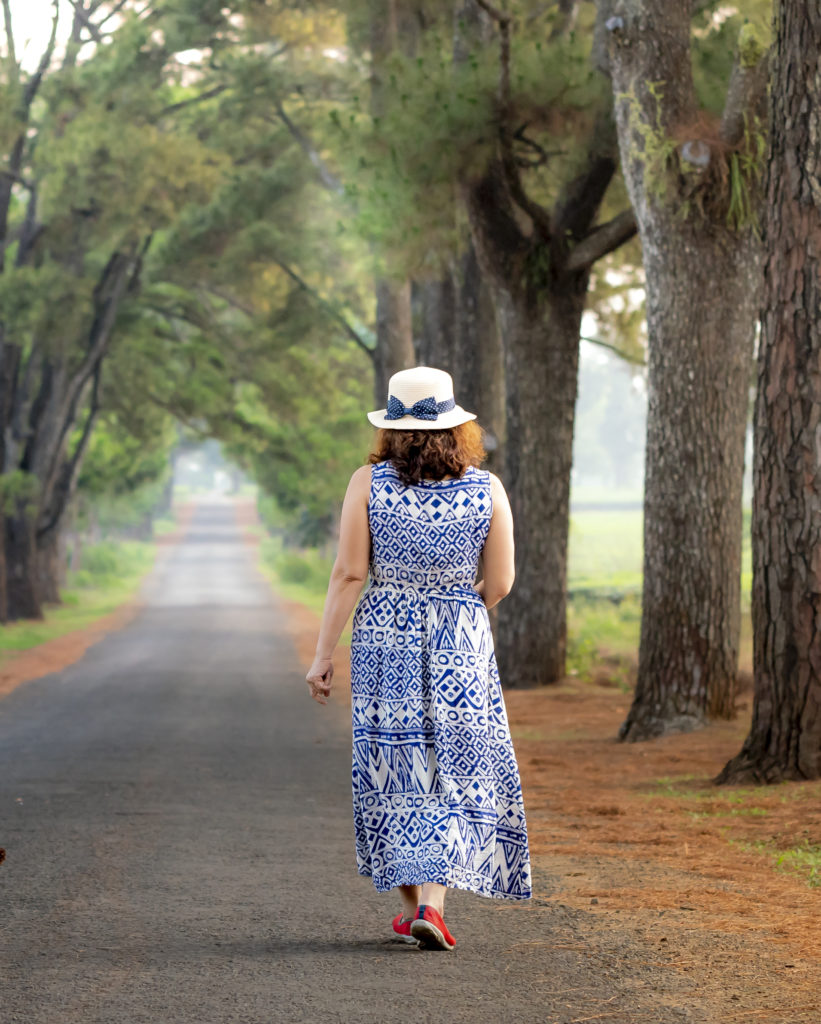Two Ocala experts on meditation and mindfulness offer insight into the differences between the two and how to begin your journey.
I have heard from friends that mediation and mindfulness can provide many benefits for the mind and body. They attest that the practices help improve quality of life, reduce stress and can even help with challenges such as illness and addiction.
 The venerable Mayo Clinic has a mediation section on its website. Clinic staffers state that “Meditation can give you a sense of calm, peace and balance that can benefit both your emotional well-being and your overall health.”
The venerable Mayo Clinic has a mediation section on its website. Clinic staffers state that “Meditation can give you a sense of calm, peace and balance that can benefit both your emotional well-being and your overall health.”
But who can sit still for very long, much less quiet their mind? I have tried it on my own, and even tried an app on my phone—once. But I failed at achieving any state other than agitation at myself.
So, what are some of the secrets to being able to meditate and practice mindfulness? We asked two experts in Ocala to offer guidance.
I began by asking Grace Beck, the owner of Nadi Om Wellness, if one must sit still to meditate. Beck is a licensed massage therapist, Reiki master teacher, certified reflexologist, Ayurvedic lifestyle consultant and registered yoga instructor. She offers guided meditation in a group setting and private sessions.
“No, not all meditation requires sitting still,” she responds. “Some do well with stillness, others need a more active, moving meditation practice like walking meditation or sound meditation. Some may even consider yoga a moving meditation when the correct mindset is achieved.”
When queried about how to begin, Susan Cohen, owner of The Healing Solutions Center, and who is certified as a life coach, recovery coach, Reiki master, meditation teacher, master of wisdom and addiction professional, offers, “The most important thing I teach people new to meditation is that there is no right or wrong way to meditate. Meditation is different for everyone and it is imperative to find what works for you. Making the space that you are in comfortable and setting the scene is also important to make you feel relaxed.”
Cohen adds that people often think that to meditate we need to stop our thoughts.
“This is not true because we have 60,000 to 80,000 thoughts a day. It would be impossible to stop them completely. It is not about the thoughts per se, it is about what you do with them when they arise,” Cohen explains. “For most people, the key to meditation is to notice and then release our thoughts. You can release the thought on the out breath or by picturing it floating away. I start my students meditating for short periods of time and increase it little by little as they are comfortable. The important thing is that you practice regularly and do not give up.”
Beck offers these thoughts about getting started.
“There are some great apps that can be downloaded to start a mindfulness or meditation practice. For those who do better with in-person instruction, find a group class or session and attend with an open mind. Definitely find a space and teacher that you resonate with. Private meditation lessons or group meditation lessons are also an option to learn the basics.”
As to whether meditation and mindfulness are the same thing, Beck says she would classify mindfulness as a type of meditation.
 “Mindfulness allows you to become aware of the present moment—to not just go through the motions, if you will,” she notes. “As you bring yourself into the moment, you become more focused and begin to quiet the mind—advancing your consciousness and concentration, which many contend is the goal of meditation. For some, mindfulness might be the easiest way to start a meditation practice: be mindful as you drink your morning cup of coffee, be mindful as you walk to your car, be mindful as you eat your lunch. There are many opportunities throughout the day to use mindfulness techniques. They definitely complement each other and always work toward the same goal: calming the always thinking, always doing mind.”
“Mindfulness allows you to become aware of the present moment—to not just go through the motions, if you will,” she notes. “As you bring yourself into the moment, you become more focused and begin to quiet the mind—advancing your consciousness and concentration, which many contend is the goal of meditation. For some, mindfulness might be the easiest way to start a meditation practice: be mindful as you drink your morning cup of coffee, be mindful as you walk to your car, be mindful as you eat your lunch. There are many opportunities throughout the day to use mindfulness techniques. They definitely complement each other and always work toward the same goal: calming the always thinking, always doing mind.”
Cohen attests to the fact that meditation and mindfulness are often used in a similar context and feels that confusion about the differences between the two are understandable.
“Where mindfulness can be applied to any situation throughout the day, meditation is usually practiced for a specific amount of time,” Cohen states. “Mindfulness is being focused on what is happening in the moment. When you are actively mindful you are paying attention using your five senses and noticing things such as thoughts, feelings, behaviors, etc.”
She says that meditation is an intentional practice, where you focus inward to increase calmness, concentration and emotional balance.
“There are many forms of meditation. Some are used to develop a clear and focused mind, while others are used to develop altruistic states, such as loving-kindness, compassion or forgiveness,” she notes. “And there are others that focus on your body as a means to develop awareness, such as yoga or walking. Still others use sound such as chanting, intoning sacred words and using Tibetan or crystal singing bowls.”
Cohen believes there are many benefits of mindfulness and meditation and says these include reducing stress, depression and anxiety; promoting emotional and physical wellness; enhancing self-awareness; improving memory and sleep; lengthening attention span; and helping in reducing addictive behaviors, controlling pain, lowering blood pressure, slowing the heart rate and giving a general sense of well-being.”
Cohen says her own path to becoming involved in teaching others included “extreme challenges” in life.
“I was born ill, had over 20 surgeries, suffered abuse and dealt with emotional issues,” she relates. “I’ve been searching for years for relief from anxiety, stress and depression. With the help of a life coach I was introduced to meditation, which helped me exponentially and changed my life. I made it my mission to help as many people as I can find the healing and peace I enjoy today.”
Beck believes that meditation can help mitigate the stresses in life.
 “Stress takes a terrible toll on the body physically and mentally,” she remarks. “A daily meditation practice reduces the effects of stress and offers a path to well-being and peace of mind. Depending on the type of meditation you practice, it can lead you into your best day, help you through a challenging afternoon, or complete your day and guide you into a peaceful sleep.”
“Stress takes a terrible toll on the body physically and mentally,” she remarks. “A daily meditation practice reduces the effects of stress and offers a path to well-being and peace of mind. Depending on the type of meditation you practice, it can lead you into your best day, help you through a challenging afternoon, or complete your day and guide you into a peaceful sleep.”
So, now that I have insight from these practitioners, it’s time for me to phase out the sounds of one neighbor’s rooster, another’s lawn mower and yet another’s race car engine as I work to become calmer and more centered. And now that I know I don’t have to do it sitting still, I think a walk around the block, listening intently to the sounds of birdsong and feeling the warmth of the sun on my face, may be just what the teachers ordered.
Practical tips for finding your way
“There are only two mistakes one can make along the road to truth; not going all the way, and not starting.” –Buddha
- Just begin. Create a practice that works for you, then slowly improve upon it.
- Forget about rules. Just engage in contemplation or reflection and connect with your true self.
Hacks to help:
- Sit up, close your eyes, inhale deeply and silently count to one; let that breath out and count two. Try to reach 10. If your mind wanders, start over.
- Take a walk. No chatting, no cellphone. Just walk and absorb the beauty around you.
- Pet an animal—intentionally. It will calm the animal and your mind and body.
- Find a guided meditation. Let someone else help you get started.
- Write. One page, any topic. Just get it out.
- Say thank you. Say it aloud or silently. Gratitude is a powerful emotion. Feel it, and mean it.
Online resources:
- UCLA Mindfulness Research Center: Audio tracks help you practice on your own. www.uclahealth.org/marc/
- The Chopra Center for Wellbeing: Guided meditations and 21-day meditation experience. www.chopra.com
- Spotify: Guided meditations. https://open.spotify.com/playlist/37i9dQZF1DWVS1recTqXhf
- YouTube: Guided meditations. https://www.youtube.com/playlist?list=PLwRp13WDIrMNywoE9Nd6BIJqDT_dPJrJq
- AudioDharma: Guided meditations. www.audiodharma.org






